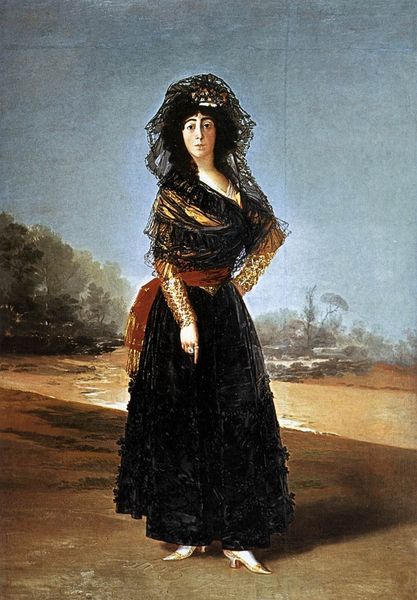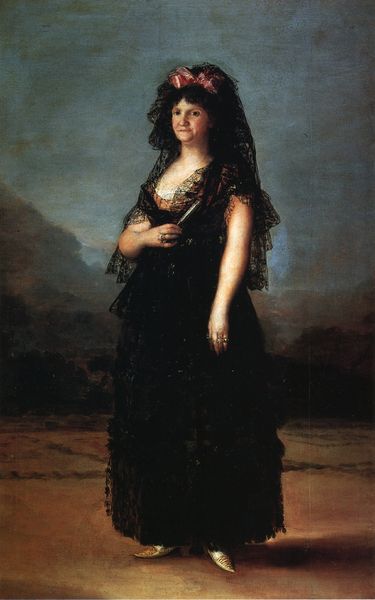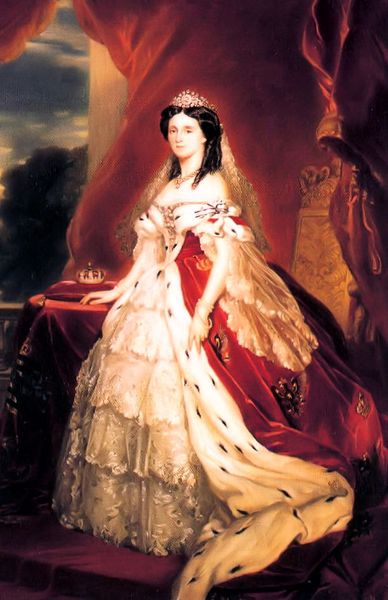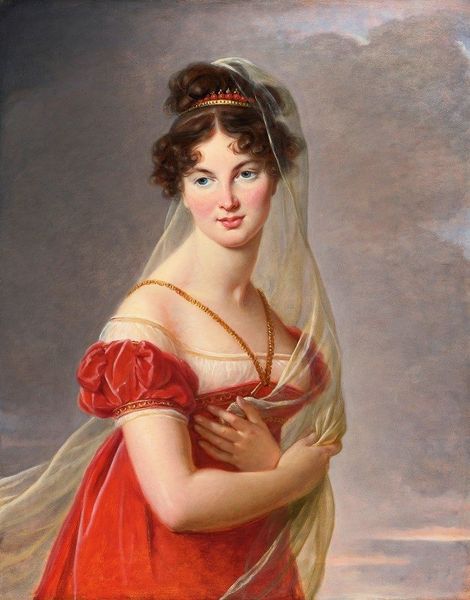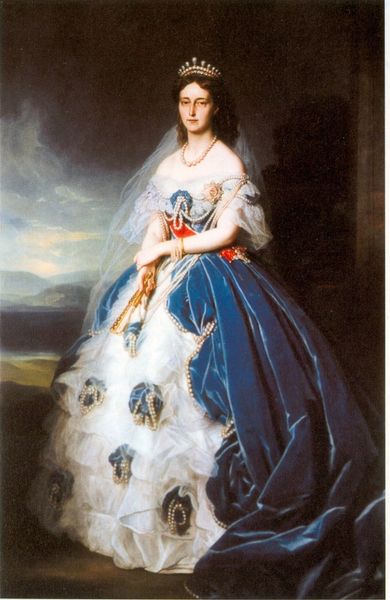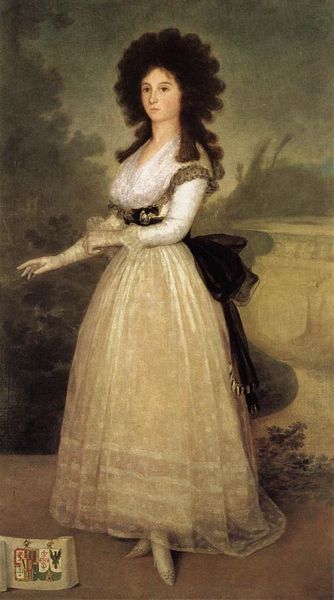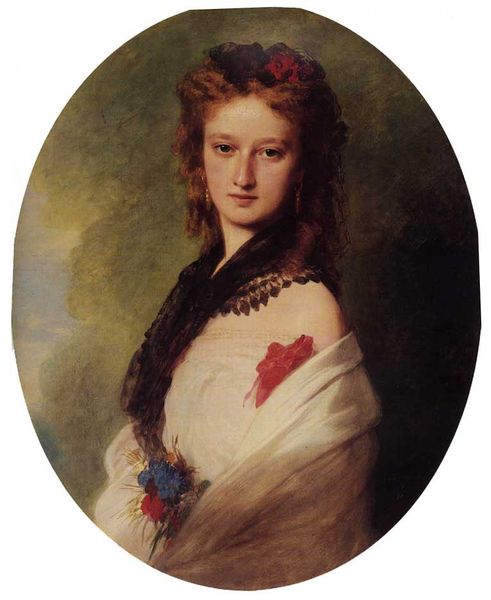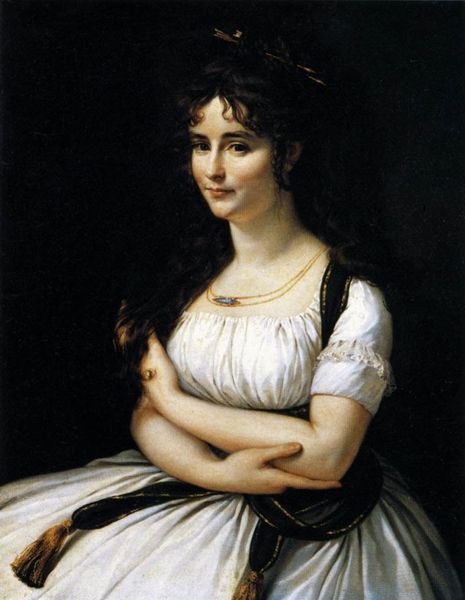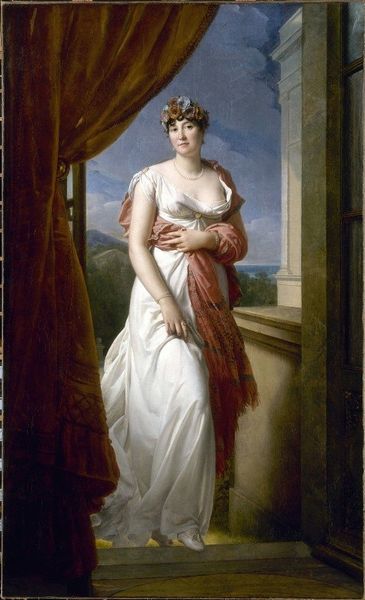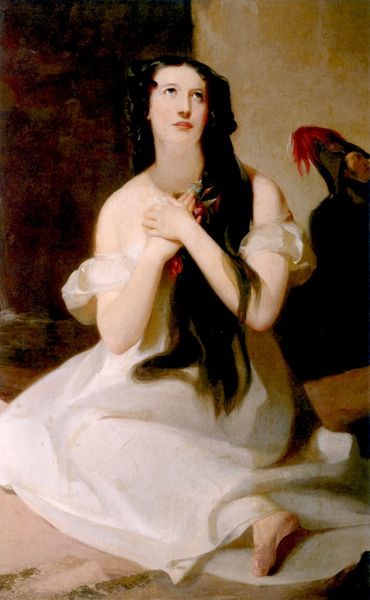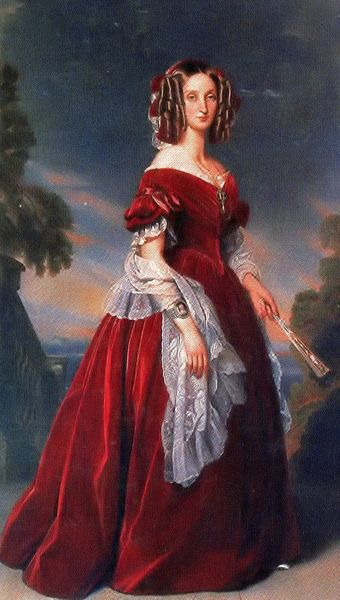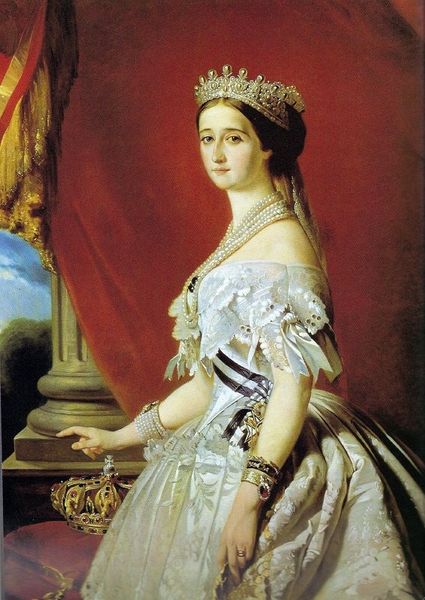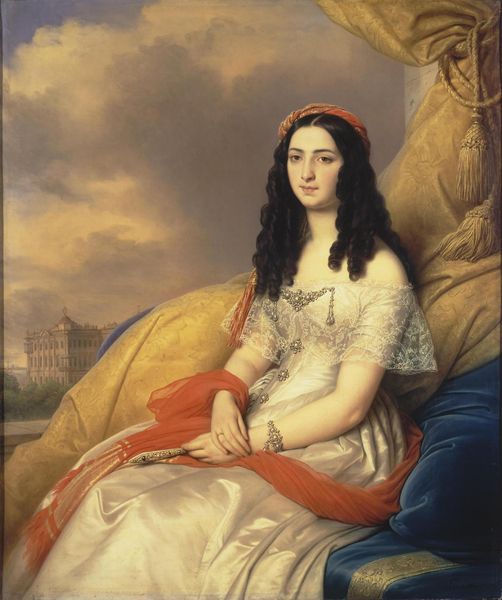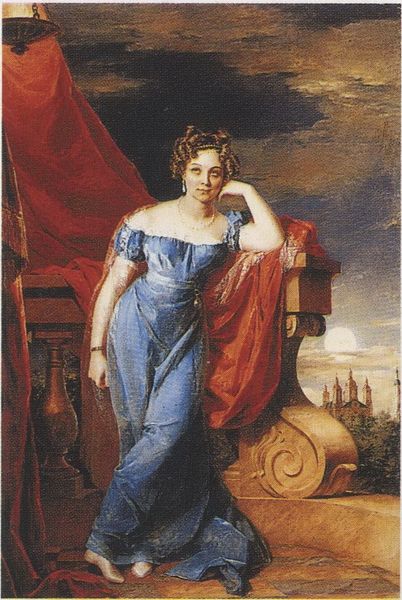
#
portrait
#
character portrait
#
possibly oil pastel
#
portrait reference
#
famous-people
#
portrait head and shoulder
#
animal portrait
#
surrealism
#
surrealist
#
lady
#
portrait art
#
female-portraits
#
fine art portrait
#
digital portrait
Dimensions: 192 x 128 cm
Copyright: Public domain
Editor: Here we have Francisco de Goya's "The White Duchess," painted in 1795. She seems almost defiant, regal. What stands out to you, and how would you interpret this portrait through its historical context? Curator: A fascinating piece. Consider what “presentation of the self” meant within the rigid social hierarchy of 18th-century Spain. The Duchess, a powerful figure herself, is meticulously dressed, signalling wealth and status. However, Goya’s choice to depict her with what some might interpret as a slightly haughty expression complicates a simple reading of aristocratic portraiture. What do you make of her pointing to the ground? Editor: That’s interesting! I hadn’t considered the gesture. Could that have something to do with her allegiance or perhaps even a secret message? Curator: Precisely! The ground leads us to her dog, often symbols of fidelity, and also towards Goya's signature. Given Goya’s role as court painter and the political tensions of the time, one could also consider how this image functioned in constructing and reinforcing the image of Spanish nobility – was it flattery, a commentary, or both? And what did her relationship with Goya mean? It was more than just Duchess-Painter... it was a politically loaded association as well. Editor: I never thought of portraits as having such hidden layers! Seeing how social standing plays into this adds so much depth. Thanks for opening my eyes! Curator: My pleasure! It reminds us that every brushstroke, every carefully chosen item of clothing, speaks volumes about the person and the society they inhabit. I will need to research the context more myself.
Comments
No comments
Be the first to comment and join the conversation on the ultimate creative platform.
